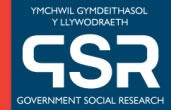Public attitudes on the changes to workplace recycling and the ban on single use plastics (summary)
This research surveyed a sample of the Welsh population in March 2023, to better understand the public’s perceptions and attitudes to the changes in legislation.
This file may not be fully accessible.
In this page
Introduction
The Welsh Government’s Resource Efficiency and Circular Economy department, commissioned Beaufort Research, to conduct a survey of the Welsh population to better understand the public’s perceptions and attitudes regarding the forthcoming legislative changes to workplace recycling and the upcoming ban on single use plastics.
The changes are not only focused on improving the quality and quantity of recycling but are vital to delivering Wales’s commitments to reach zero waste and reduce our carbon emissions by 2050. The Regulations implement a number of actions which are included in the Welsh Government’s Circular Economy Strategy for Wales, ‘Beyond Recycling, A strategy to make the circular economy in Wales a reality’.
Methodology
The survey was conducted on the Beaufort Wales Omnibus survey, which interviews a quota sample of 1,000 adults across Wales each wave and reflects the population in terms of key demographic characteristics. A different set of adults is interviewed each wave although samples are matched in terms of key demographic characteristics.
The survey was subject to interlocking demographic quota controls [footnote 1] of age within gender. A further separate quota control was set on social grade [footnote 2] and interviews were undertaken with residents of every local authority in Wales. At the analysis stage, the data was weighted by age group, gender, local authority grouping and social grade. This ensures that the sample reflects 2021 Census figures and the characteristics of the Wales population.
Respondents were also asked whether they were an owner, director or senior decision-maker within a business, charity, or public sector organisation. This allowed for responses to be broken down by whether respondents were decision-makers within an organisation who will be directly affected by the introduction of these regulations. It should be noted that 147 respondents out of the overall 1,000 respondents surveyed identified themselves as an owner, director or senior decision maker within a business, charity, or public sector organisation.
Draft questions for the survey were supplied by Welsh Government. These were finalised following discussions with Beaufort (see Annex A for the questionnaire).
All questions asked were closed questions, that is participants were given response options to choose from.
Demographic questions are included as standard in the Wales Omnibus survey. The survey was available in English and Welsh and could be taken in the participants’ preferred language.
Fieldwork took place between 27 February and 19 March 2023. A total of 1,000 interviews were completed and analysed.
Full data tabulations from the survey have been provided to the Welsh Government in a separate technical report.
The Wales Omnibus Survey uses proportional quota sampling (not random sampling) to reflect key demographics within the Welsh population. Therefore, any findings in this survey reflect the view of the sample and care should be taken in translating any findings to the wider population in Wales.
Main findings
Support
The great majority of respondents supported each forthcoming change in legislation indicating that a total of 77% of respondents overall were in favour of the workplace recycling legislation and 77% of respondents in favour of the ban on single use plastics.
In terms of those against the changes in legislation, 5% of respondents were against workplace recycling changes and 8% of respondents were against the ban on single use plastics.
Decision-makers were slightly less supportive with 74% of respondents who were business/organisation decision-makers supporting the changes in workplace recycling legislation this compared with 15% against, while 79% of decision-making respondents were in favour of the single use plastics law compared with 14% against.
Awareness
Spontaneous awareness of any forthcoming changes to the law were relatively low for both pieces of legislation. This is expected due to the timelines for both legislation. Single Use Plastics ban changes come into force on 9 October 2023 and the Workplace Recycling legislation changes come into force on the 6 April 2024. Awareness was higher for single use plastics than for workplace recycling (with 22% of respondents aware of the former, compared to 12% of respondents aware of the latter).
Respondents who were senior decision-makers or directors in businesses, charities or public sector organisations were much more likely to be aware of changes to the law than general respondents:
- 46% of decision-making respondents were aware compared with 12% of respondents overall were aware of workplace recycling law changes.
- 45% of decision-making respondents were aware and 22% of overall respondent were aware of single use plastics law changes.
When prompted with specific information about the law changes and what they relate to, 26% of those surveyed had heard about the new workplace recycling law (rising to 69% of respondents who were business decision-makers), compared with 44% of respondents who were aware of the single use plastics law (rising to 73% among respondents who were business decision-makers).
Footnotes
[1] Quota controls are target numbers of interviews set for specific demographic groups within the population, to help achieve a representative sample for the survey. Interlocking demographic quota controls means that the target incorporates two variables: age group within gender.
[2] Social grade is a classification system based on occupation developed for use on the National Readership Survey (NRS). Social grades are defined as follows:
AB: Higher and intermediate managerial, administrative, and professional occupations
C1: Supervisory, clerical, and junior managerial, administrative, and professional occupations
C2: Skilled manual workers
DE: Semi-skilled and unskilled manual workers, state pensioners, casual and lowest grade workers, unemployed with state benefits only.
Contact details
Authors: Rhian Power and Hannah Davies
Views expressed in this report are those of the researchers and not necessarily those of the Welsh Government.
For further information please contact:
Rhian Power
Email: resourceefficiencyandcirculareconomy@gov.wales
Social research number: 76/2023
Digital ISBN 978-1-83504-335-6

